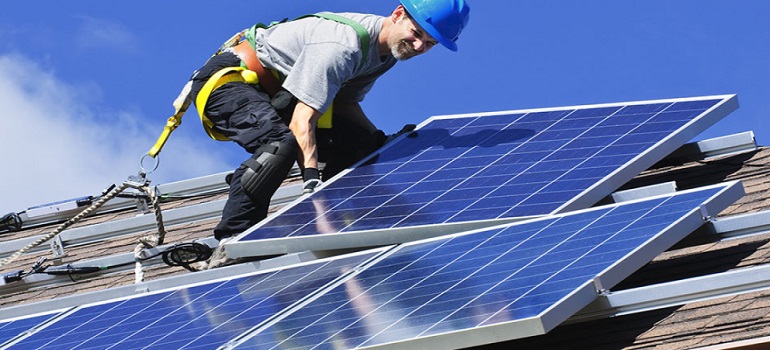The owner of McDonald’s in West and South India aims to increase the use of renewable energy and reduce its carbon footprint.
Westlife Foodworld Ltd., the owner and operator of McDonald’s restaurants in West and South India, is taking significant steps to mark World Environment Day 2023.
The company, formerly known as Westlife Development Ltd., has announced its plans to install rooftop solar panels on one-third of its new restaurants in the fiscal year 2024. This initiative is in line with Westlife’s commitment to increasing the use of renewable energy and reducing its carbon footprint.
Over the past two years, Westlife has already made substantial progress in reducing its environmental impact. By saving 19.58 million units of electricity, equivalent to planting 749,086 trees, the company has managed to reduce its carbon footprint by 16,308 tonnes. This achievement not only signifies Westlife’s dedication to sustainable practices but also demonstrates its focus on operational efficiency by cutting electricity consumption and lowering CO2 emissions.
Smita Jatia, Vice Chairperson of Westlife Foodworld, emphasized the company’s commitment to a lower carbon footprint and highlighted various initiatives that support this goal. These include increased recycling and reuse of materials, adoption of renewable energy sources, and reduced consumption. Jatia also stressed the vital role that businesses must play in addressing climate change and expressed pride in Westlife’s ongoing efforts to combat this global issue. The company remains steadfast in its pursuit of a greener future while continuing to provide customers with delicious and sustainable food.
ALSO READ: Unlocking the Benefits of Carbon Credits for a Sustainable Future
In addition to its renewable energy endeavors, Westlife has implemented measures to conserve resources and promote sustainability. The company has eliminated single-use plastics from customer-facing packaging and is actively improving energy efficiency in its existing restaurants through the use of LED lighting and OATS (order assembly table set). Furthermore, Westlife prioritizes sustainable sourcing by incorporating green-certified ingredients such as UTZ-certified coffee beans, supporting one of the world’s largest sustainable programs for coffee and cocoa farming. The company also pioneers the recycling of converted biodiesel in India by converting its used cooking oil into biodiesel.
ALSO READ: Interview with Ashutosh Verma, Founder of Exalta India
The commitment to environmental sustainability extends beyond processes and equipment and encompasses Westlife’s employees as well. Over 10,000 employees have taken the ‘Lifestyle for the Environment’ Pledge on the MyGov Pledge platform, demonstrating their dedication to actively participating in environmentally friendly practices and cultivating long-term sustainable habits. To further promote a greener future and celebrate World Environment Day in the community, McDonald’s restaurants in West and South India are distributing Marigold seeds to their customers.
Each of these initiatives, including the increased use of renewable energy, contributes to Westlife’s overarching goal of achieving carbon neutrality by 2050. The company’s pledge through the United Nations Climate Change reflects its deep commitment to environmental conservation and reducing its carbon footprint. Westlife Foodworld Ltd. sets a commendable example for the industry by prioritizing sustainability and taking concrete steps toward a greener and more sustainable future.
FOLLOW US ON


